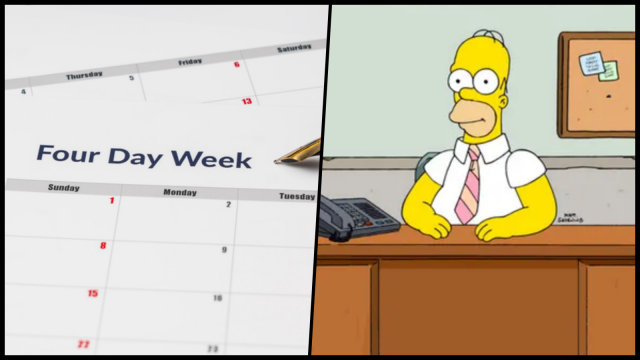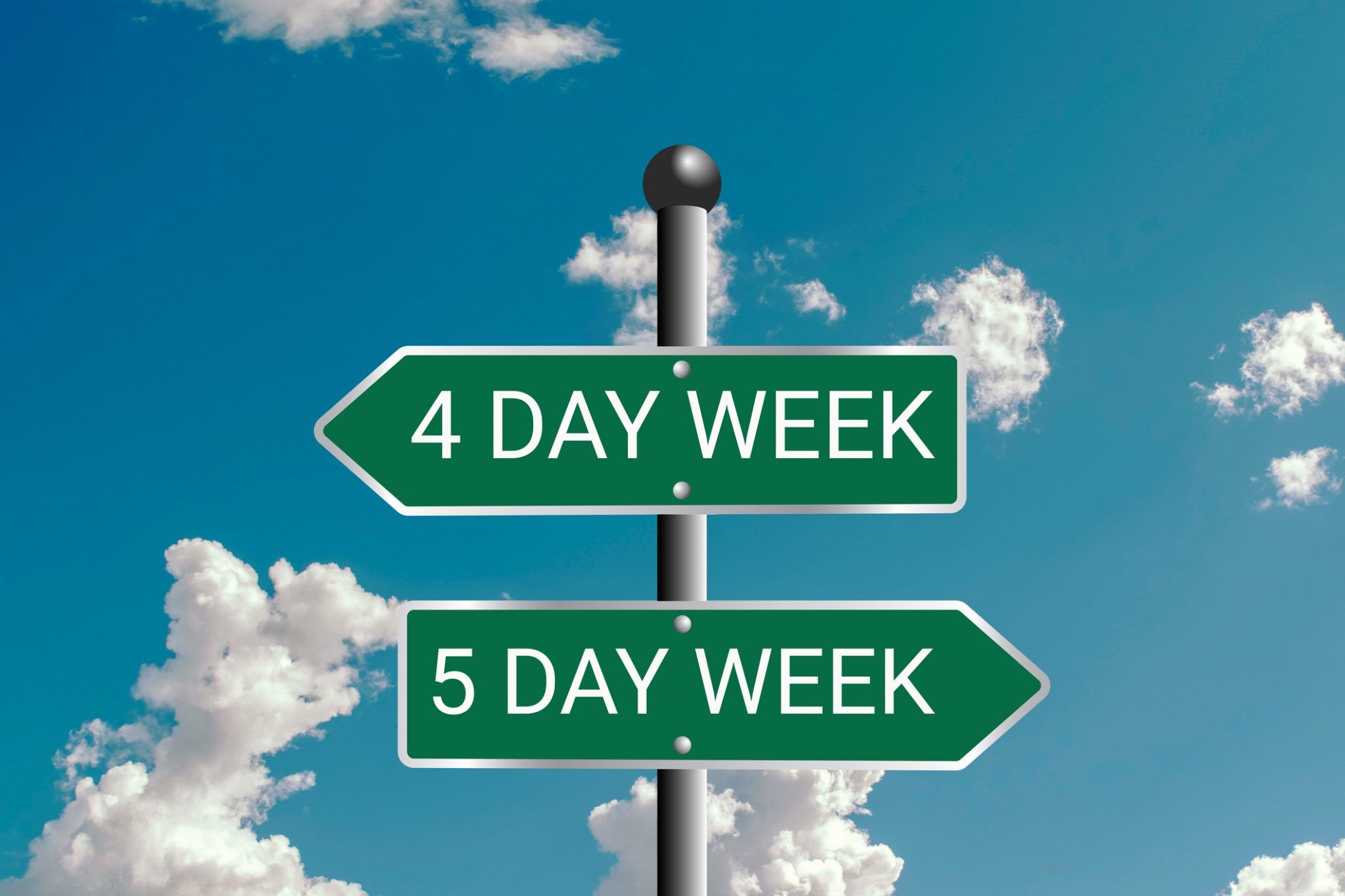

Share
11th June 2022
10:00am BST


But what of the direct benefit for the individual? Stone says his own staff are notably happier and healthier, with 87% of MRL's workforce reporting that their mental health and wellbeing had improved over the first six months of moving to a four-day work week. Productivity, potentially the biggest factor for any company considering a switch, increased by 25% over the same period. There must be a catch, surely? "There seems to be a common misconception around the four-day week; people think you have to stretch hours, split shifts, ram KPIs [Key Performance Indicators] down your teams' throats and micro-manage to oblivion to make it work," says Stone. "It's just not the case. We haven't increased our daily hours to make up for Friday off, we don't micro-manage, we don't do death-by-KPIs. We doubled down on our training to make our consultants more productive, and began focusing on outputs instead of inputs. "There isn't any risk of burnouts if you do a four-day week properly – quite the opposite in fact. We've kept the same targets as we did before, and the same daily hours, and we've never been better for it. But there isn’t really a ‘con’ at all if you do it right." As Stone points out, every company is different. So too, the wants and needs of a human being. The prospect of a four-day week may well represent a utopian ideal for you, with or without the presence of increased hours per day. At the same time, perhaps your stress and burnout levels are already stretched within a traditional five-day timeframe. In short, an about-face may not be for everyone. In 2019, London-based science research foundation The Wellcome Trust walked back plans to move to a four-day working week, noting that it could not even engage on a trial basis without "an unacceptable disruption" to its output. It was ultimately deemed too tricky to decide which departments could avail of the move and which could not. Additionally, some workers reportedly felt it better "for their mental health" to stick to a five-day swing. For employers, there's a perception issue that may come into play, one powered by old-school management methods and an 'out of sight, out of mind' feeling that may muddy the water. One such instance reported by the BBC detailed a PR officer's experience of moving to four days. He felt it was fruitful, though his line manager was of the mind that less one-on-one time with his employee equated to less work being carried out. In the end, the worker was offered a promotion – but only if he returned to a five-day schedule. In September of 2019, a report commissioned by the UK Labour Party and carried out by economic historian Robert Skidelsky rejected the prospect of a four-day week in line with a nationalised French model, instead favouring a move to a five-day 35-hour week across the next decade."There isn’t really a ‘con’ at all if you do it right."

Here at home, the Four Day Week Ireland campaign continues to push for change, addressing a "false narrative that working long hours is good for productivity and a badge of honour" and looking to "challenge the worst excesses of the ‘work-first, always-on’ culture" while also seeking to highlight the value of increased family time and the opportunity to explore other options, be it individual or community-driven. Melissa, a front end web developer at Galway-based marketing and design agency Proactive, works Monday to Thursday from 8.30am until 6pm, having moved to a four-day run last July. Initially, she approached her employer primarily out of curiosity to see if they would agree to the adjustment. "To be fair to them, they’ve always been very flexible and supportive of people requiring different work hours, be it personal reasons, family reasons, that kind of thing," she says. "I was fairly optimistic going in. Looking back, it took a little bit of time – okay, let’s test this for a couple of months and see if it works, and if it’s really not working and our productivity falls off a cliff, we can review and see. But so far, I’ve not received any complaints. "In web development, I guess one of the bigger potential issues would be if something went wrong but we’ve managed to expand the team a bit so then there was a little bit of leeway in terms of who needed to be in all the time. And we refuse to launch websites on a Friday. Well, personally, I refuse to launch websites on a Friday. So that just meant that all had to fall into place." Melissa doesn't think her productivity has dipped since the move. If anything, the knock-on effect of the pandemic has had a decisive influence. "It has benefited from the working from home situation," she says. "Because they kind of came tied in together, it’s hard to maybe say what it would be like working a four-day week from an office. That’s a different conversation but I haven’t found that it has impacted me [negatively] – I’ve had to get things done faster or be more conscientious of the time I’m spending on chats with people or how long a meeting is running, that kind of thing. "I was in the office recently to help a new starter set up and – again, slightly different situation – I’m conscious that I lose some of that day doing that, so now I have three days to get through everything I need to get through. There’s probably an element of needing to manage your time a bit better or maybe being aware that you might end up working that little bit later to just get something over the line. But that will be happening anyway on a five-day week.""I’m not as frustrated by things at work after I’ve had the three days to decompress."

And the overall positives? "I find I’m not as frustrated by things at work after I’ve had the three days to decompress," says Melissa. "It’s easier to step back and actually feel like you’ve taken a break rather than falling out of the office on a Friday evening having maybe one day still sort of half-thinking about something that has been blocking you or that you were struggling with, or something somebody said. "Or if you’re out on a Friday or a Saturday night and you’re hungover all day Sunday and you have to go into the office on a Monday… there’s no opportunity within that to fully decompress and escape your day-to-day work. The three days offer that extra padding or cushion. "A couple of friends have had babies recently; I get to see them on the Friday and then they have family time with their partners or whatever on the weekend. Weekends have gotten harder to catch up with people with everybody else on a nine to five so I get that one on one time and that’s been really nice." And what of anyone who might be hesitant to adopt a four-day week, be it on the employer or employee side? What would Melissa's message be to them? "I want to know what the opposition’s fear is, if they don’t think they can deliver. We still feel a need to provide a five-day service for our clients so we can’t as a company go to a four-day week with everybody off on a Friday. But within that, you can have different people taking different days. "If you run a trial and you’re still able to provide that service, what is the fear of not providing that to your employees and to giving them that extra headspace where they can relax and come in refreshed and more able to take on whatever’s on their plate for that day? "Mostly, I have very few complaints," Melissa elaborates. "I mean look, the longer days can be a pain – when the evening starts brightening up it sucks to be tied to your desk until after 6pm. I’m pretty clear in communicating with clients and teammates so I haven’t felt too much stress from the work side of things, certainly. "There’d be a bit of residual guilt, maybe, to some extent – if things are going wrong on a Thursday and you’re leaving people a little bit in the lurch on the Friday or you know something is likely to be a problem that day, but actually it’s not my problem but if I was in it would be, kind of thing. So there’s maybe a little bit of that. "Even still, I’d be confident enough that the team in there is able to handle it, or that mostly things can be pushed and touched to Monday, anyway. I’d feel confident that we can manage things to keep everything moving up until the point that it needs to and to keep it going through Friday if that’s what is demanded.""There’d be a bit of residual guilt, maybe, to some extent."

Rob works with Paypal – a company, it should be noted, that announced over 300 job cuts in Ireland in May. Rob took up his position in November and was immediately offered the option of a four-day week. Like Melissa, he works from 8am until 6.30pm. "They’re longer days but you fly through them," he says. "It’s completely manageable for me – some people may view it differently. Even recently, in February, getting trained into a new department, they moved us back nine to five Monday to Friday just for that run, and those days absolutely flew. Then you get back into your routine. "The mornings fly and overall it doesn’t even enter into your psyche after a while. You’re getting up at half seven because you’re working from home and even that has a benefit. You’re not getting up at 6am to travel in for a massive long shift. You really don’t notice it after a while." The positive impact on Rob's day-to-day has been quickly apparent, however. "Having the extra day, especially during the week, to get stuff done – going to the bank, home admin, clean the house, mow the lawn, et cetera – is a huge plus," he nods. "You’re doing it on a day where it’s still kind of that new to me that I’m like, ‘Oh, none of my friends are off today, I’ll still use the hours between nine and six to do things I don’t want to do on the weekends’ – they’re my ‘proper’ days off with other people. It’s a big benefit to get basic tasks done and become a house-husband or house-person or whatever during that time – you always know there’s a weekday where you can schedule things in. It just frees up an awful lot more time. "My headspace now versus where I was in my old job is miles better. Just knowing that I have the extra day – you potter about the house and see ‘Oh this needs to be done, that needs to be done’ – you have a day, almost like a day in the pocket that’s yours. It’s my day to get stuff done and even if I don't want to get stuff done it’s still my day, whether it’s a mental health day or just a day watching films, whatever you want. It feels like your reward, which is quite cool. You feel like you’ve earned it. "I live with my girlfriend. She gets up and works five days, I’m working four. She doesn’t expect me to clean the house when I’m off but you still end up doing it – she’s even said that mentally I’m a lot more polite and nice to be around, she sees it coming out in me. Which is very nice. I didn’t know I wasn’t that nice but obviously she did and didn’t mention it!" Again, one must ask about any visible negative aspects to the four-day working week. The possibility of increased risk of burnout, for example? "Really in my head, you’re working most jobs from nine until five every day – do two extra hours make that much of a difference?" asks Rob. "In our place it’s busy in the morning and then it slowly gets quieter after about 4pm, so from 4pm to 6pm we kind of just finish up with the stuff you didn’t have time to do earlier in the day. You don’t find yourself going over that timeframe; you really are just clocking out at the end of the day, closing your laptop, turning off the screen and not thinking about it. It’s completely adaptable and relatively easy in that sense. "There’s very little downside to it," Rob continues. "The only real downside to it is that you still have a week’s worth of work to get through, so you’re just figuring out how best to split that up. All the other people from work, when they started into it, you’d hear ‘Jesus, these days are quite long’ but those conversations dropped off after a little while. "You still have long days, as any job does, but they’re only long when it’s quiet. Nobody has really had a bad time acclimatising to it. In terms of productivity, no drop-off. There was even a recent announcement from the North American market that they’re delaying a full-time return to the office for at least a year because productivity is currently so high. It’s not ‘Oh you have to burn yourself out’ – when you’re in work, work – but it’s not a case of feeling like you should be running on fumes."'My girlfriend said that mentally I’m a lot more polite and nice to be around, she sees it coming out in me.'

And for anyone who might have the perception the manoeuvre might somehow represent laziness or a bid to do less work with one eye constantly on a three-day weekend, Melissa says it's simply a matter of condensing your workload in a professional manner. "I guess it’s the same fear from people who can’t see the working from home situation," she considers. "I wonder is it just a very ingrained mindset where you’re working nine to five for five days a week and that’s what you do to do your work, but the world is going to shit around us – why do we have to spend every single day in an office, you know? "There has to be some positives to all of this bloody ambition and development. If we’re such a developed country, why do we have to work all the time?""There has to be some positives to all of this bloody ambition and development."
Explore more on these topics:

Life Style | Joe.ie
life style